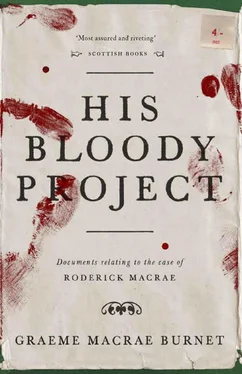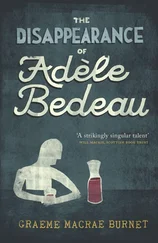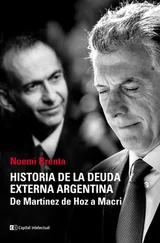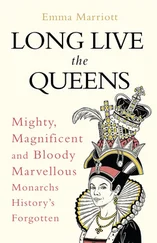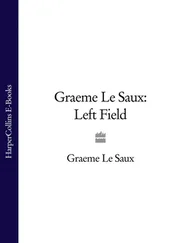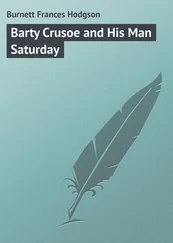Graeme Burnet - His Bloody Project
Здесь есть возможность читать онлайн «Graeme Burnet - His Bloody Project» весь текст электронной книги совершенно бесплатно (целиком полную версию без сокращений). В некоторых случаях можно слушать аудио, скачать через торрент в формате fb2 и присутствует краткое содержание. Год выпуска: 2015, Издательство: Contraband, Жанр: Современная проза, на английском языке. Описание произведения, (предисловие) а так же отзывы посетителей доступны на портале библиотеки ЛибКат.
- Название:His Bloody Project
- Автор:
- Издательство:Contraband
- Жанр:
- Год:2015
- ISBN:нет данных
- Рейтинг книги:5 / 5. Голосов: 1
-
Избранное:Добавить в избранное
- Отзывы:
-
Ваша оценка:
- 100
- 1
- 2
- 3
- 4
- 5
His Bloody Project: краткое содержание, описание и аннотация
Предлагаем к чтению аннотацию, описание, краткое содержание или предисловие (зависит от того, что написал сам автор книги «His Bloody Project»). Если вы не нашли необходимую информацию о книге — напишите в комментариях, мы постараемся отыскать её.
A brutal triple murder in a remote northwestern crofting community in 1869 leads to the arrest of a young man by the name of Roderick Macrae. There’s no question that Macrae is guilty, but the police and courts must uncover what drove him to murder the local village constable.
And who were the other two victims? Ultimately, Macrae’s fate hinges on one key question: is he insane?
His Bloody Project — читать онлайн бесплатно полную книгу (весь текст) целиком
Ниже представлен текст книги, разбитый по страницам. Система сохранения места последней прочитанной страницы, позволяет с удобством читать онлайн бесплатно книгу «His Bloody Project», без необходимости каждый раз заново искать на чём Вы остановились. Поставьте закладку, и сможете в любой момент перейти на страницу, на которой закончили чтение.
Интервал:
Закладка:
‘Now, Roderick,’ he said, ‘some days ago a dreadful crime was committed in your village.’
‘Yes,’ I replied, not wishing him to continue. ‘I killed Lachlan Broad.’
‘And the others?’
‘Them too,’ I said.
Mr Sinclair nodded slowly. ‘You are not saying this in order to take the blame for another person?’ he asked.
‘No,’ I said.
‘And did you act alone in this enterprise?’
‘Yes,’ I said, ‘I acted entirely alone and as I have no intention of denying anything, I have no need of the services of an advocate. I do not repent my actions and whatever happens now is a matter of indifference to me.’
Mr Sinclair gazed at me for some moments after my little speech. I did not know what was in his mind, for I have not been much in the company of the educated classes and their manners are quite different from my own people.
Eventually he said that he appreciated my candour and asked my permission to visit again the following day. I said that he was welcome to visit whenever he wished as I had enjoyed talking to him. He replied that he had enjoyed talking to me too. Then he struck the door twice with the flat of his hand and the gaoler, who must have been waiting outside all along, turned the key in the lock and let him out.
Mr Sinclair has indeed continued to visit and I admit that I have come to look forward to his company and regret my rudeness to him on that first day. It is a mark of his superior breeding that he has been prepared to overlook my ill manners. As my cell has now been furnished, at Mr Sinclair’s insistence, with a table and chair for me to write at, our time together has become a little more comfortable. Mr Sinclair sits on the rickety chair by the desk while I sit on the bunk or on the floor beneath the window. My advocate’s eyes often wander towards the pages I am writing. It was on his second or third visit that he suggested I make a record of the events leading up to my crimes and he seems pleased that I have taken to the task wholeheartedly. One afternoon, as he ran his thumb through my pages, he told me that he was curious to know what was contained in them. I am discomfited by the idea of an educated man perusing my crude text, but I told him I was only writing it because he had asked me to do so and he was welcome to take away the pages whenever he wished. He replied that he preferred to wait until I had finished and that it was important for me to continue as if I was writing neither for him nor for any other audience.
Mr Sinclair seems to me to be a man of great patience. He begins each day by asking me the same questions regarding my general comfort and whether my meals are adequate. He has said several times that it would be possible for a meal to be brought to me from a local inn, but I reply that I am quite accustomed to plain fare and there is no need to go to any inconvenience on my behalf. This morning, however, our conversation took a quite different turn. Mr Sinclair has, in general, avoided discussion of the details of the murders themselves. Today, however, he pressed me on the issue of what was in my mind at the time I committed them. I replied that my only thought was to deliver my father from the injustices visited upon him by Lachlan Mackenzie. Mr Sinclair probed at this point for some time, re-phrasing his questions over and over until I felt that he was trying to catch me out, but he did not succeed in doing so.
Mr Sinclair then asked what I would think if he proposed that at trial we entered a plea of not guilty. I replied that it was an absurd idea as it was quite clear that I was guilty and had never made any attempt to conceal the fact. Mr Sinclair then explained to me that in the eyes of the law, in order for a crime to be committed there must be both a physical act and a mental act. It was clear, he said, that in this case there was a physical act, but whether there was a mental act — an evil intention, he called it — was a matter which concerned the contents of my mind. I listened courteously to Mr Sinclair’s earnest summary, feeling increasingly that it was sometimes the case that in his mania to employ his great cleverness he quite disregarded the most obvious facts. However, I responded only that I did not see how anything he had said had any bearing on the present case.
Mr Sinclair then adopted a tone which suggested that he did not wish to injure my feelings. ‘What if it was suggested that what you believe to have been in your mind at that time was not what was actually in your mind?’ he said.
I laughed quite rudely at this silliness. ‘If something else was in my mind, then I would surely have known it,’ I said. ‘Otherwise it could not have been in my mind.’
Mr Sinclair smiled at my response and tipped his head to one side as if to concede the point. He told me that I was a very clever young man. I confess I was flattered by this pronouncement and I blush at recording it here.
He continued, ‘Do you think it is possible, Roddy, for a madman to think that he is of sound mind?’
This proposition initially seemed equally as absurd as his previous statement, but then I thought of Murdo Cock, the imbecile of Aird-Dubh, who was often known to sleep in his hen house and crow like a rooster. Would he, if asked, answer that he was insane? I realised that Mr Sinclair, in his delicate manner, was suggesting that I, in my own way, was like Murdo Cock. I took some moments to respond, realising that I might indeed appear the maniac if I answered intemperately.
‘I can assure you,’ I said in a measured tone, ‘that I am fully in possession of my faculties.’
‘It is precisely the fact that you believe that to be true which suggests the opposite,’ he replied. I must have seemed quite offended by this statement, as he then added, ‘You must understand, Roderick, that it is my duty to examine all possible avenues for your defence.’
‘But I have no wish to defend myself,’ I blurted out, immediately regretting the rudeness of my interruption.
Mr Sinclair nodded briefly and stood up. He looked a little sad and I felt that I hurt his feelings and wished to make amends.
‘All the same,’ he said, ‘I wonder if you might consent to being examined by a gentleman who is most eager to make your acquaintance.’
I was struck once again by the absurdity of the situation in which, by virtue of making a murderer of myself, gentlemen now sought out my company, but I replied simply that I would be happy to meet whomsoever he pleased.
‘Good,’ he said, and with that he made his usual sign for the gaoler to release him.
* * *
A few days after the sea-ware incident I met Flora Broad for a second time. I was sitting on the dyke that separates the crofting land from the road, teasing some crows by means of a mouse tied to a length of string. My back was to the village so I was unaware of Flora approaching. She must have seen that I was engaged in a game of some kind because when she appeared beside me she asked what I was playing. I felt ashamed to be engaged in such a childish pursuit so I let the string drop from my fingers and said that I was not doing anything.
‘It seems that you are always busy doing nothing,’ she replied. ‘The Devil will find work for your idle hands.’
‘And what work would that be?’ I said.
Flora shrugged her shoulders and cast her eyes skywards. She sat down next to me on the dyke. She was carrying a basket covered with a checked cloth, and this she set on her lap. Her skirts brushed against my leg. A few moments later the string I had dropped snaked its way through the grass and a crow hopped away with the prize between its beak.
‘Are you not afraid your father might see us?’ I asked.
‘It is you that should be afraid,’ she said, ‘as it is not me that will receive the thrashing.’
Читать дальшеИнтервал:
Закладка:
Похожие книги на «His Bloody Project»
Представляем Вашему вниманию похожие книги на «His Bloody Project» списком для выбора. Мы отобрали схожую по названию и смыслу литературу в надежде предоставить читателям больше вариантов отыскать новые, интересные, ещё непрочитанные произведения.
Обсуждение, отзывы о книге «His Bloody Project» и просто собственные мнения читателей. Оставьте ваши комментарии, напишите, что Вы думаете о произведении, его смысле или главных героях. Укажите что конкретно понравилось, а что нет, и почему Вы так считаете.
